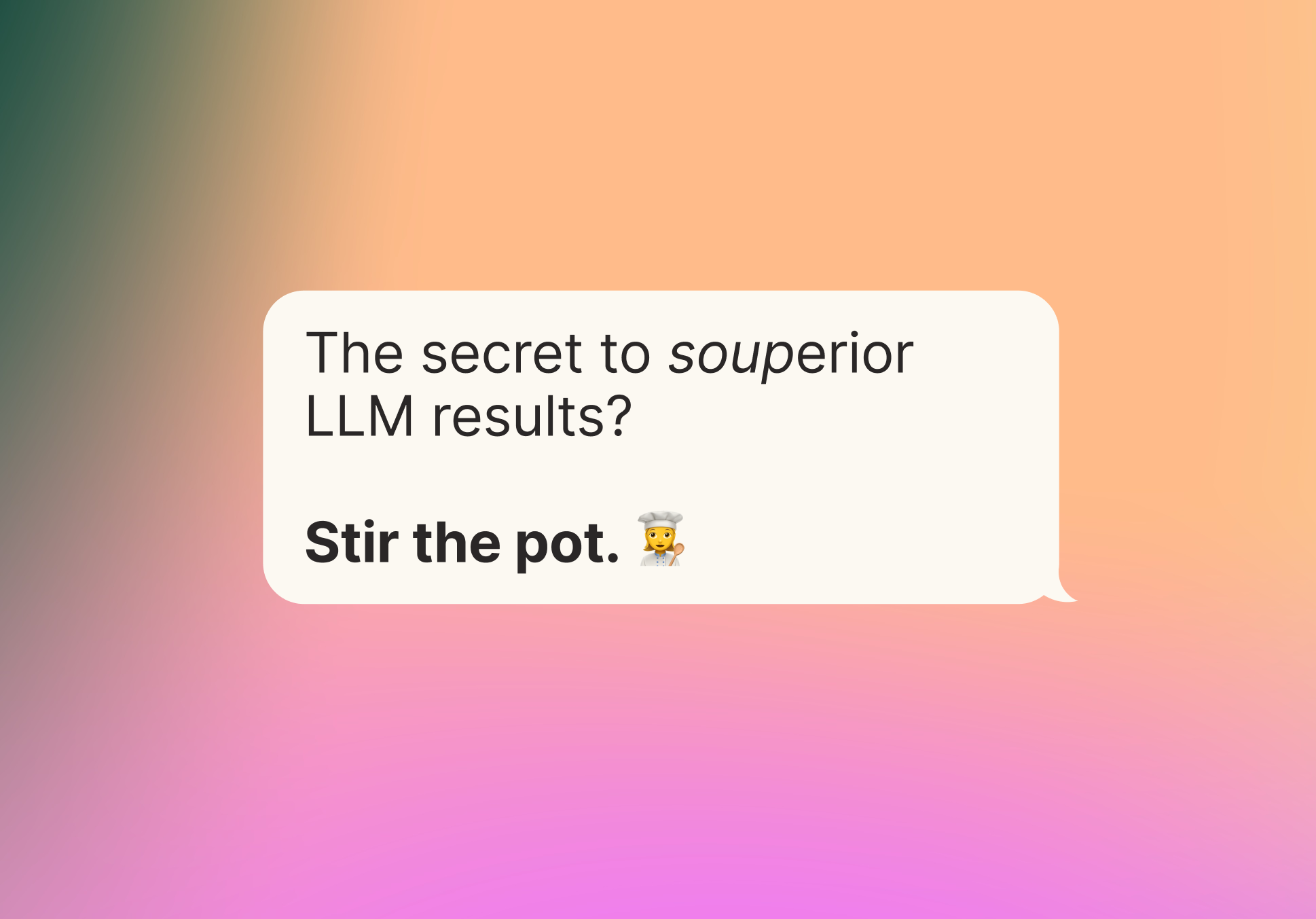This is a guest post by Plumb’s Chief of Staff, Jules Lajeskie.
It’s a Sunday evening in late September. I’m sitting on the couch, sipping on hot tea and watching football. There’s a chicken vegetable soup simmering on the stove — a cozy fall feast that took several hours to make. I spent the afternoon diligently chopping all the vegetables, roasting the chicken, and creating a bone broth from scratch. Finally, in the fourth quarter of the 49ers vs Rams game, I decide it’s time for a taste test. But my soup, much like Jake Moody’s field goal attempt, is a miss.
I pace around the kitchen, trying to determine where I went wrong. Did I mess up the proportions? Forget a crucial ingredient? Add sugar when I thought I was adding salt? If only I could ask the soup itself: What’s not working? What should I do now?
Desperate, I turned to ChatGPT.
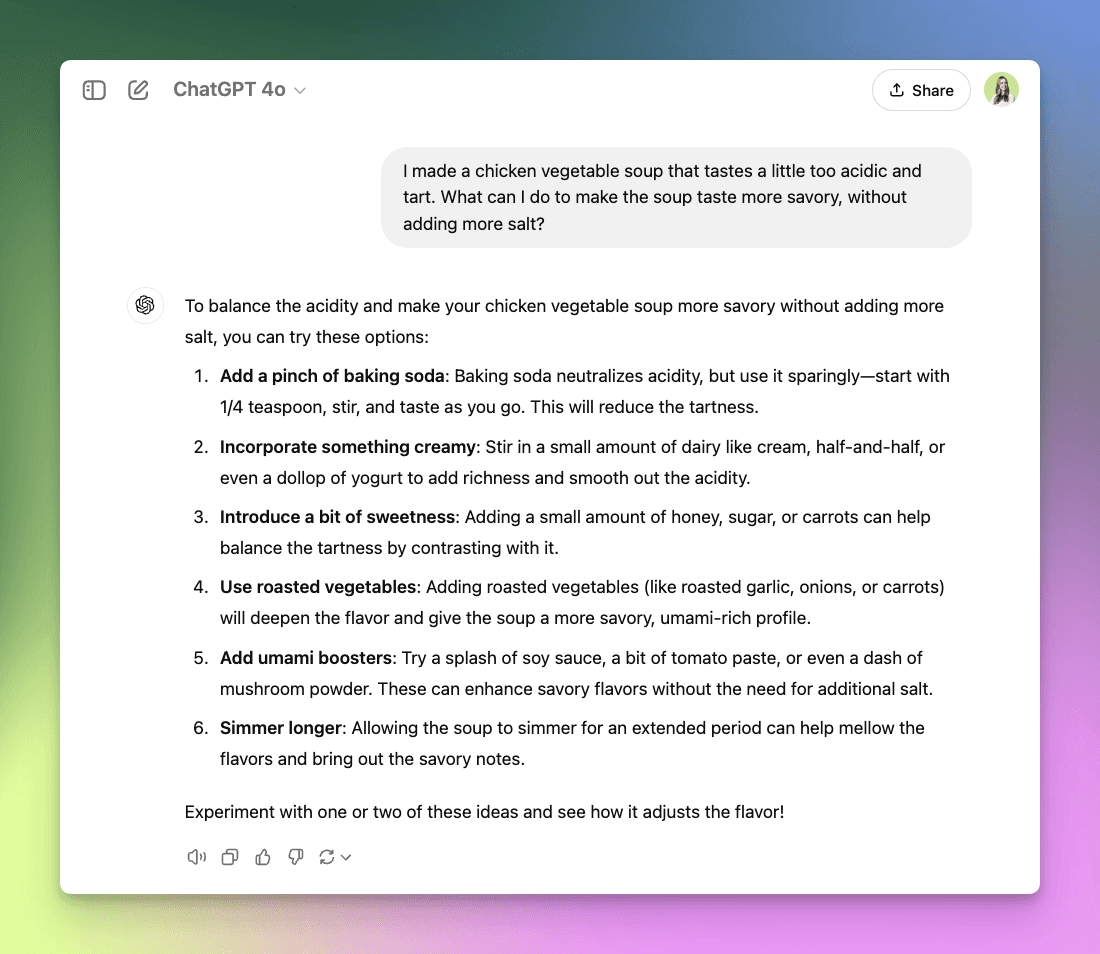
That’s when a major unlock occurred.
For the past year, I’ve been at Plumb: a startup with an AI-native product. Despite my regular exposure to AI, I still consider myself only slightly above-average at leveraging tools like Claude and ChatGPT. I’ve been meaning to expand on my general AI knowledge and prompting skills, but who has the time to watch all those tutorials and read all those blog posts? Not me — not when there’s football to watch and soup to be made!
Standing there over the stove, wooden spoon in one hand and phone in the other, wishing my soup could tell me how to fix it, it dawned on me: Could I become better at AI, by asking AI?
The short answer: yes.
Self-Reference as a Superpower
When ChatGPT launched to the public in 2022, it didn’t just set a new precedent for human-computer interaction — it established an entirely new paradigm. Unlike other software products, chat-based LLMs are self-referential. They know about themselves, and they have no barrier to sharing that knowledge with you, the user. You just have to ask.
What do I mean by this? Read on for 4 easy ways to harness AI’s self-referential superpowers.
1. Ask AI How to Use AI
Not sure exactly what to say to get the results you’re after? No need to become a prompt engineer. Tell Claude what you’re trying to do, and ask it for the right prompts to use.
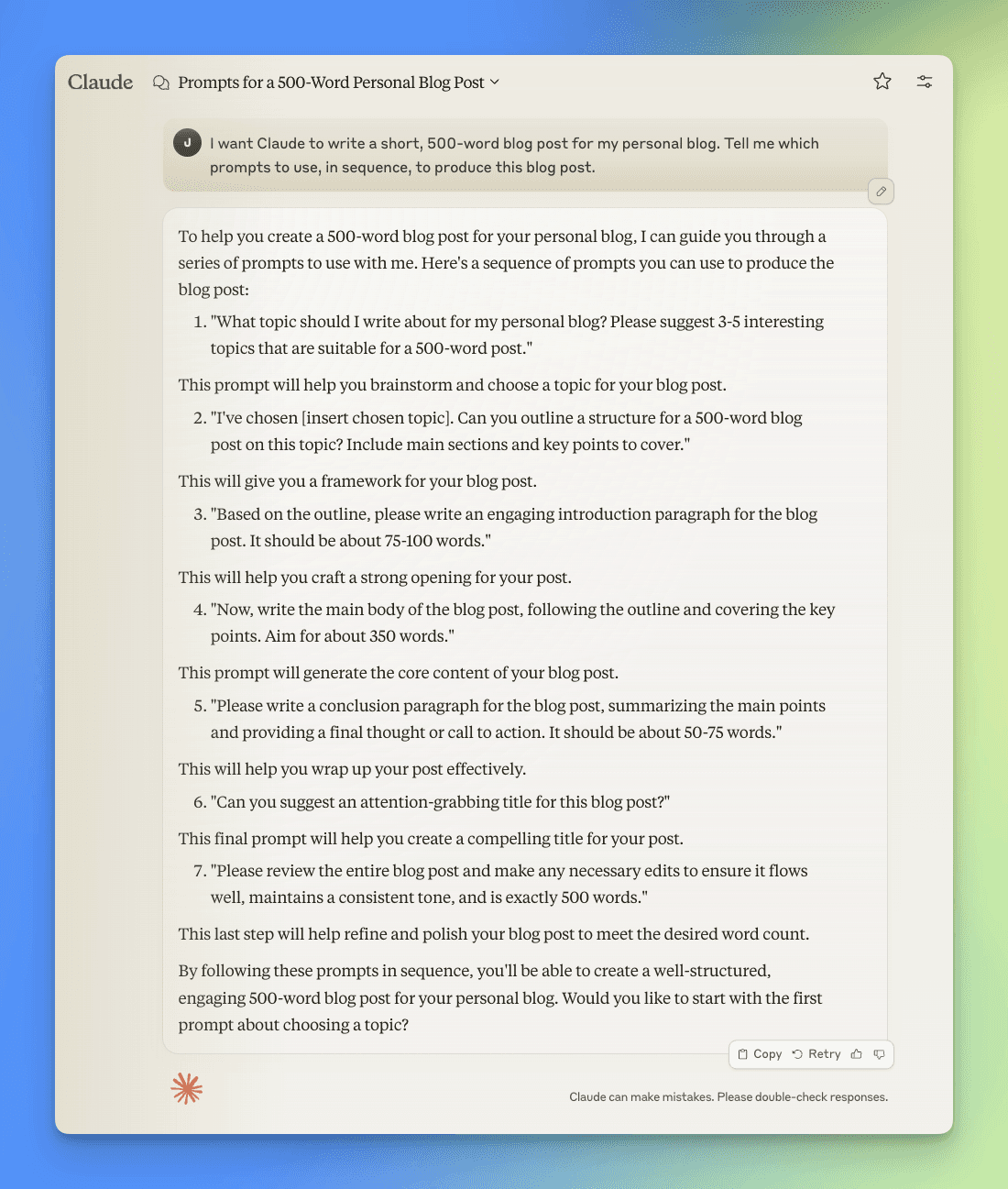
2. Ask AI to Refine Its Output
What about when the right prompt didn’t yield perfect results? Instead of starting from square one, try kicking off a conversation about the results. Tell ChatGPT what you don’t like about the results, and ask it to reflect on its work.
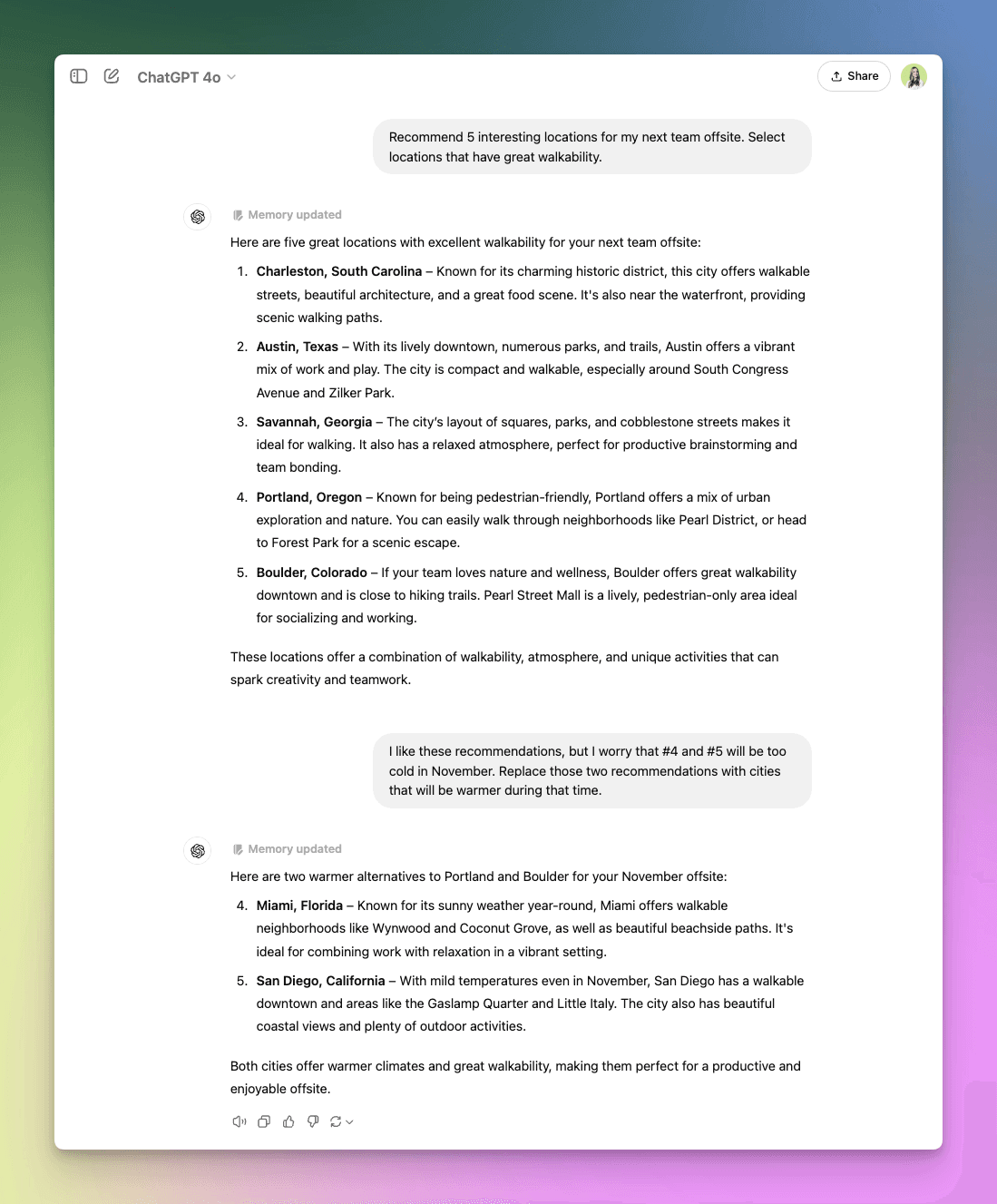
3. Ask AI to Suggest Next Steps
Or how about when everything is going well — you and Claude had an excellent collaborative brainstorm — but now you’re stuck? Tell Claude that you’re stuck, and ask it to suggest next steps.
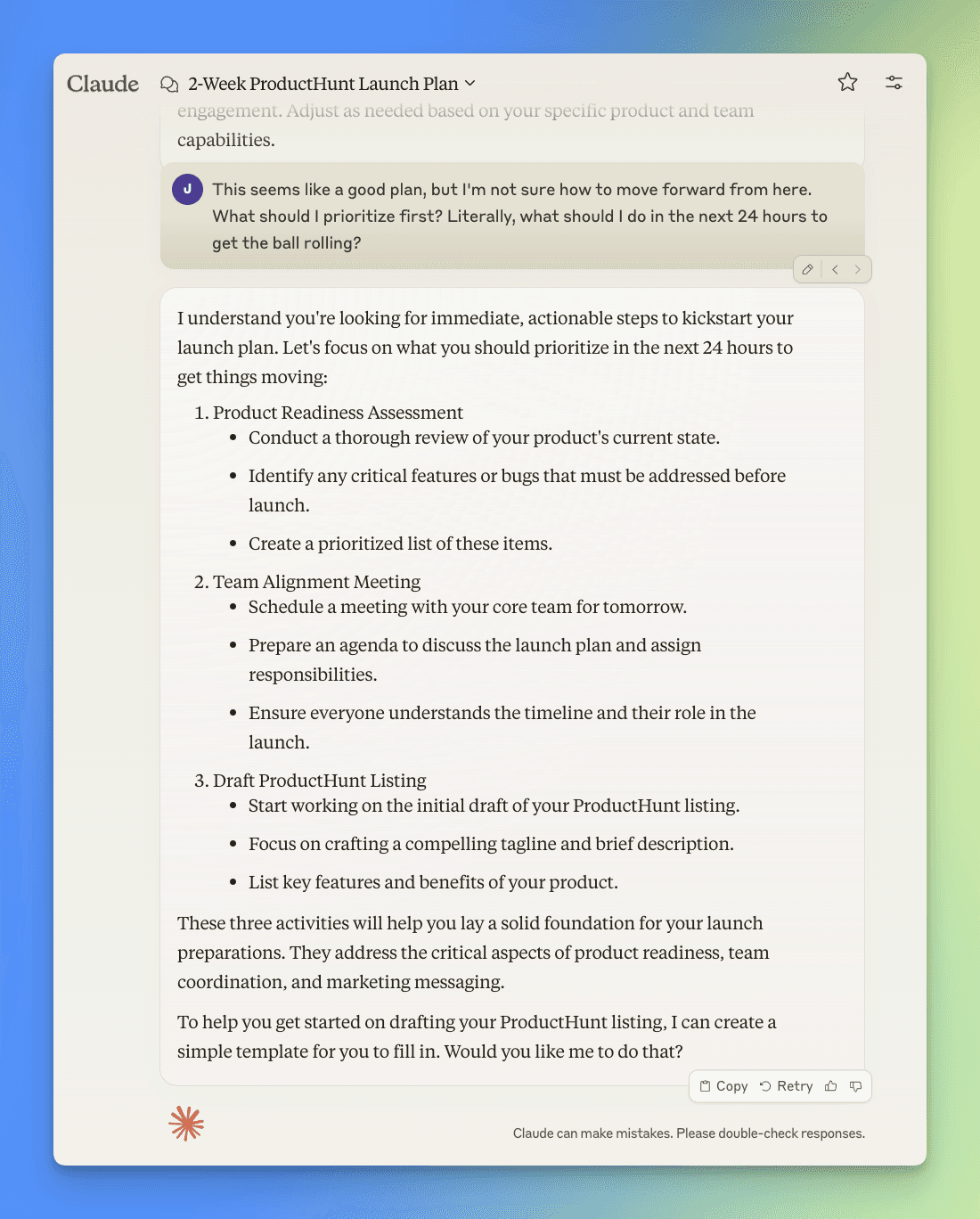
4. Ask AI to Ask You Questions
If you’re really caught in a loop on an open-ended problem, try flipping the script and ask AI to do the heavy lifting. Ask ChatGPT to ask you questions to help you work through the problem at hand.
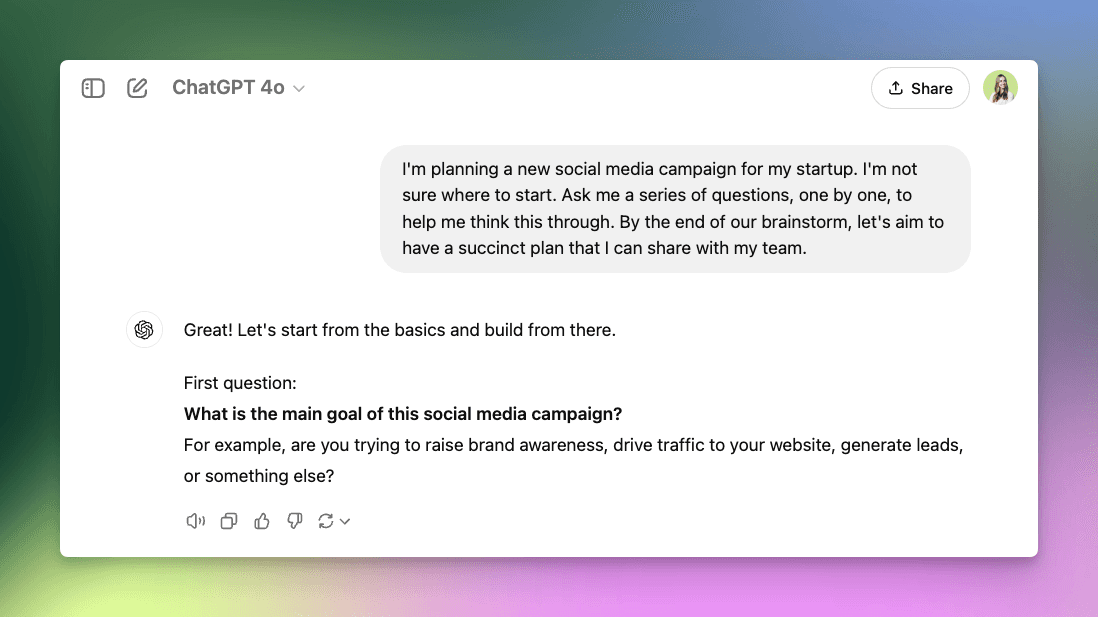
Next time you’re struggling to work with AI, instead of inundating yourself with hours of YouTube tutorials, try one of these tactics and see what happens. As Plumb's cofounder and CTO Chase Adams shared recently on LinkedIn, "AI won't steal your job. It'll 10x your output."
The Magic of Plumb
At Plumb, we think mastering the art of writing prompts is work you shouldn’t have to do. That’s why we created magic mode. Just tell Plumb’s AI what you want, and watch it create workflows before your eyes. We’re on a mission to make the power of AI accessible to everyone, one workflow at a time. Join us and experience the magic of effortless automation.
